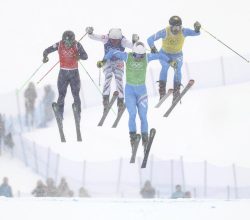Shaken but Not Stirred, Japan Badminton Pair Aims for Paris Gold; Experiencing Earthquake Gave Long-Time Friends Mental Strength to Succeed
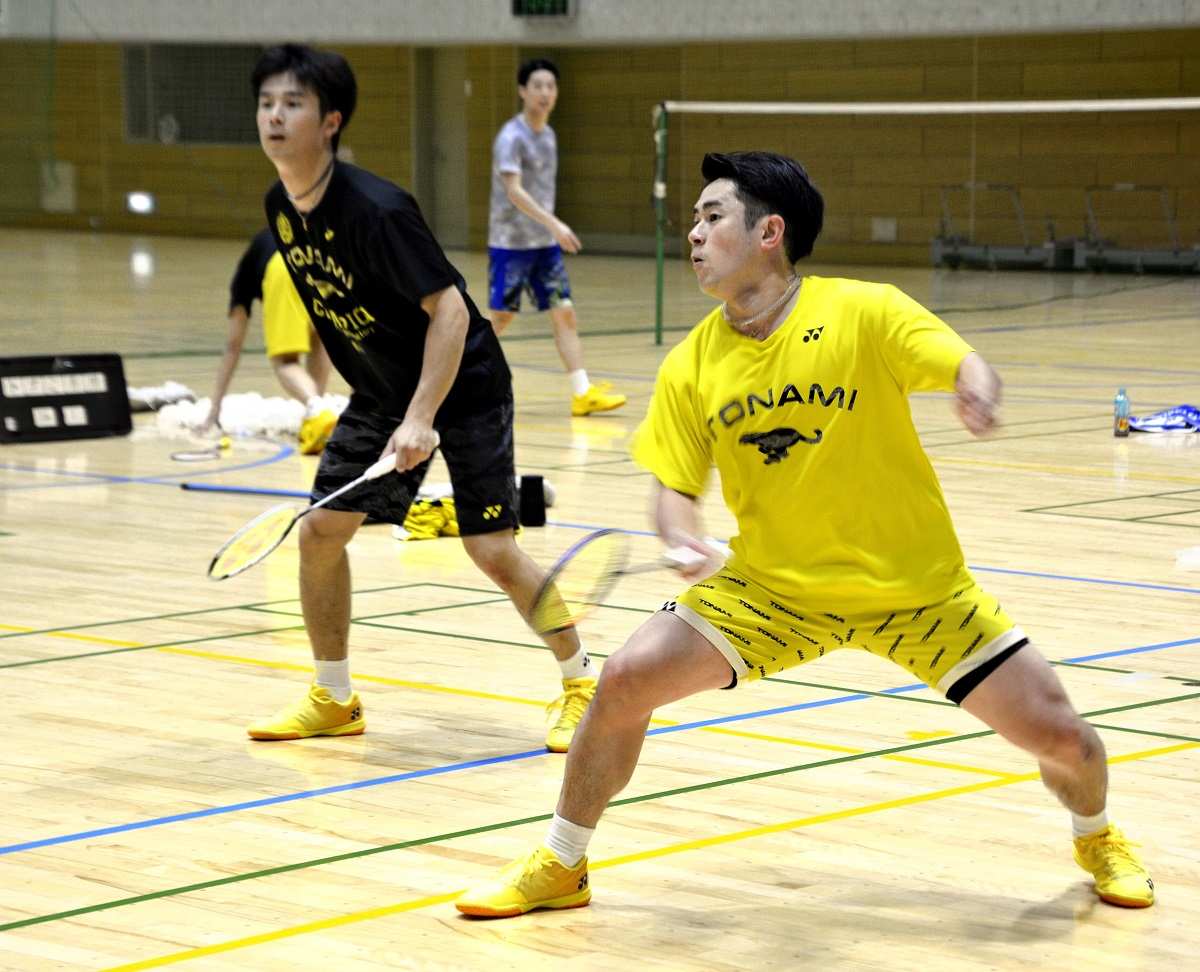
The Olympic-bound badminton doubles team of Takuro Hoki, right, and Yugo Kobayashi practice in Takaoka, Toyama Prefecture, in May.
7:00 JST, July 20, 2024
In a Toyama Prefecture gym last May, the badminton doubles team of Takuro Hoki and Yugo Kobayashi were involved in a fierce rally during a practice session open to the media in preparation for the Paris Olympics, all under the watchful eye of Japan’s national team coach.
That Hoki and Kobayashi — affectionately referred to as “Hokikoba” — will be battling for a medal in Paris is testament to their mental strength and determination made stronger by ordeals that exceed anything encountered in sports.
On the day in 2011 that the two graduated from the same junior high school in Tomioka, Fukushima Prefecture, the Great East Japan Earthquake struck. The two were temporarily separated as their families were forced to evacuate the devastated area.
Eventually they were reunited and formed a doubles team, and after 13 years of diligence, they qualified for the Olympics. Hoki, 28, and Kobayashi, 29, acknowledge that the earthquake made them “stronger,” and now they aim to repay all those who helped them along the way through success in Paris.
The two compete for Tonami Transportation Co.’s badminton team and practice in Takaoka, Toyama Prefecture, where the company in based. Hoki sets up to receive in the front, while Kobayashi provides winning smashes from the back.
Yamaguchi Prefecture native Hoki and Kobayashi, who is from Miyagi Prefecture, were first united in 2008, when they enrolled at badminton powerhouse Tomioka Daiichi Junior High School in Fukuhsima Prefecture and lived together in the dormitory.
At 2:46 p.m. on March 11, 2011, the school’s graduation ceremony had already finished and Kobayashi was off the school grounds when the powerful earthquake struck. He evacuated to higher ground to escape the oncoming tsunami. “It was like being on the verge of death,” he said recalling the horror of the experience.
Hoki was in the dormitory at the time, which was not damaged. But Tomioka High School, where they planned to go next, was located in the evacuation zone set up in the wake of the accident at Tokyo Electric Power Company Holdings, Inc.’s Fukushima No. 1 nuclear power plant. All activities by sports teams were on hold.
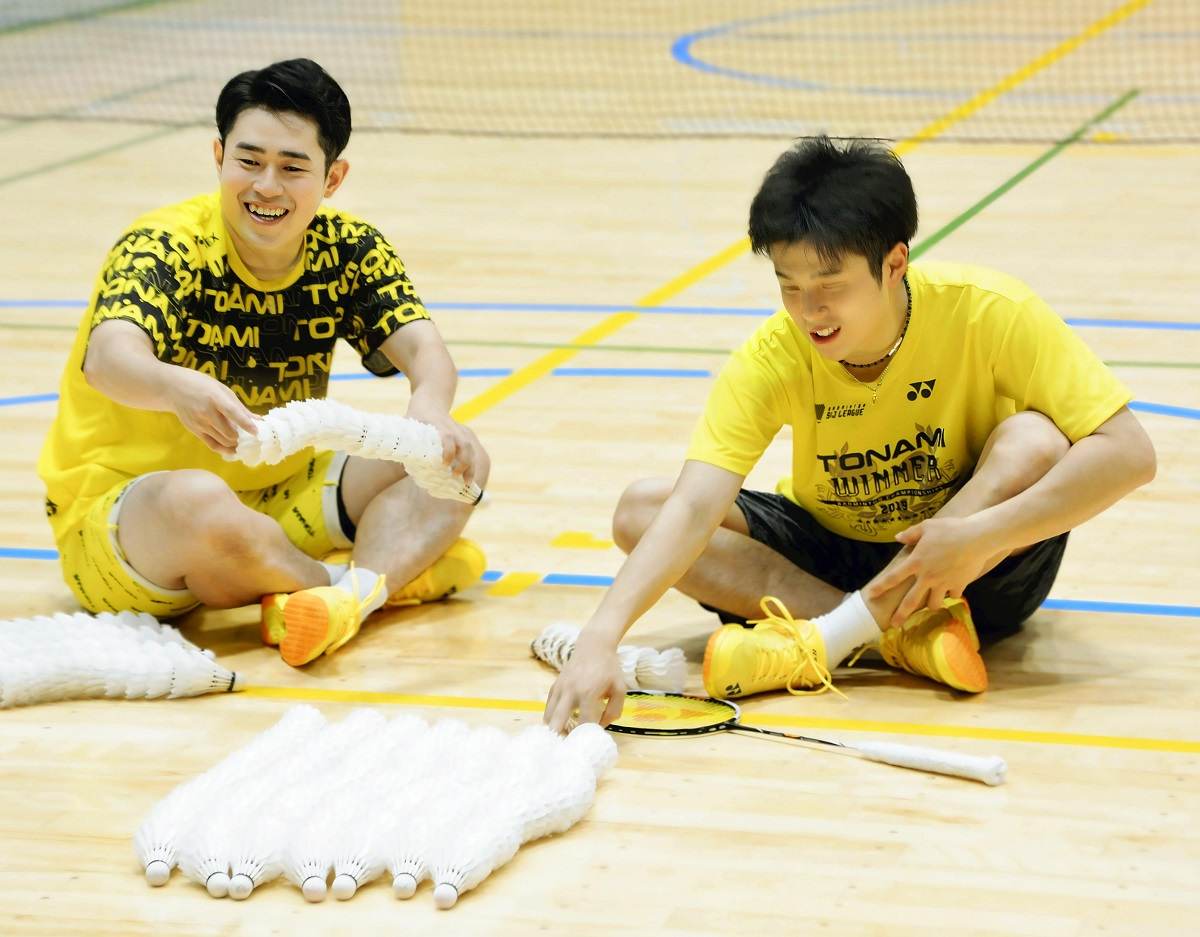
Takuro Hoki, left, and Yugo Kobayashi share a laugh in Takaoka, Toyama Prefecture, in May. The pair’s close relationship is one of their strengths.
It was the coach at Tomioka High School at the time, Hitoshi Ohori, who scrambled to help them find a place to play, eventually hooking Hoki up with the team at Tonami Transportation, where Ohori is now the coach. For Hoki, the intense practice sessions exposed him to the speed of active national team players and the top level of the sport.
Meanwhile, Kobayashi, who had evacuated to Kyoto to live with relatives, was allowed to join in the practices of a nearby high school. But he told himself, “There is no place but Tomioka High School where I can play at a high level.”
Two months after the earthquake, the Tomioka High School badminton team resumed practice in Inawashiro, Fukushima Prefecture. Among those sharing the court was singles star Kento Momota, who would go on to become the No. 1 ranked player in the world. Ohori paired up Hoki and Kobayashi for doubles.
The facility which served as their dormitory also housed evacuees from the area around the nuclear power plant. Seeing them, the two questioned whether it was appropriate for them to keep practicing. But Ohori reassured them, saying, “It is your mission to go out and win games and be a shining example.”
From then, Hoki and Kobayashi would train several times a year at Tonami Transportation, and in their senior year, they won the title at the Inter High School Athletic Meet. They continued to make progress after joining the company upon graduation, and reached No. 1 in the world rankings in 2022.
But their encounters with disaster were not over. The Noto Peninsula Earthquake that struck on Jan. 1 this year also caused damage in Toyama Prefecture, and Hoki’s apartment building became unlivable after tilting due to liquefaction.
It only reinforced their belief that their appearance at the Olympics can be more significant if they can give courage to the people affected by the disaster by doing the best they can.
Top Articles in Sports
-

Milano Cortina 2026: Figure Skaters Riku Miura, Ryuichi Kihara Pair Win Gold; Dramatic Comeback from 5th Place in SP
-

Milano Cortina 2026: Kokomo Murase Comes Out on Top After Overcoming Obstacles, Aiming for Greater Heights in Competition
-
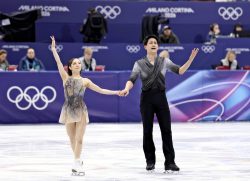
Milano Cortina 2026: Riku Miura, Ryuichi Kihara Clinch Japan’s 1st Gold in Pairs Figure Skating, Rebounding from Disappointing Short Program
-

Milano Cortina 2026: Olympics-Torch Arrives in Co-Host Cortina on Anniversary of 1956 Games
-
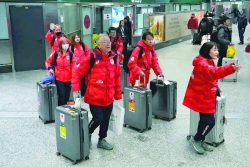
Milano Cortina 2026: Japan’s Athletes Arrive in Italy for Milano Cortina Winter Olympics; Other Athletes to Arrive from Now
JN ACCESS RANKING
-

Japan PM Takaichi’s Cabinet Resigns en Masse
-

Japan Institute to Use Domestic Commercial Optical Lattice Clock to Set Japan Standard Time
-

Israeli Ambassador to Japan Speaks about Japan’s Role in the Reconstruction of Gaza
-

Man Infected with Measles Reportedly Dined at Restaurant in Tokyo Station
-

Videos Plagiarized, Reposted with False Subtitles Claiming ‘Ryukyu Belongs to China’; Anti-China False Information Also Posted in Japan



